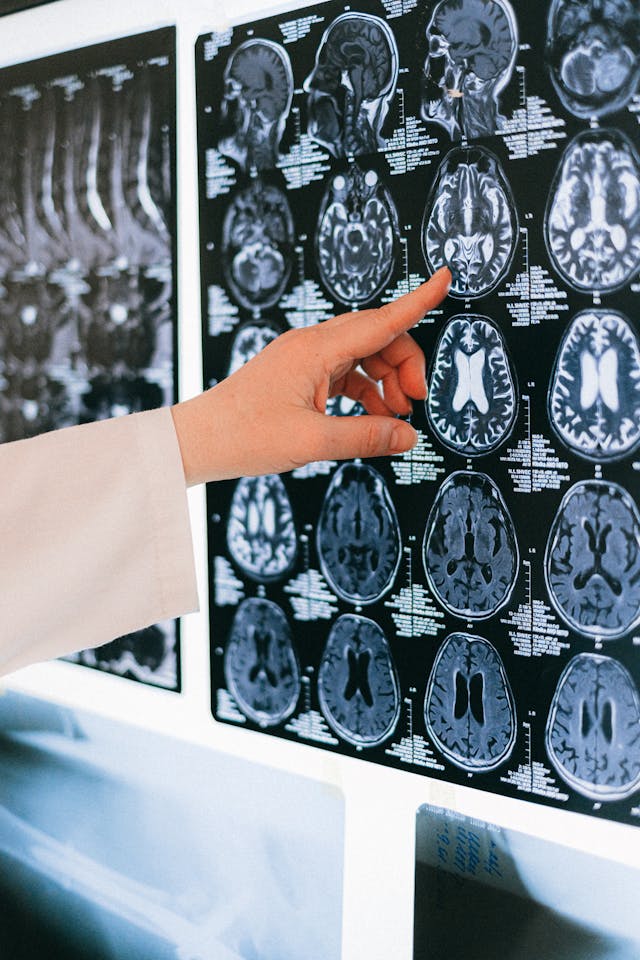
Understanding Complex Needs: Care for Multiple Sclerosis
Caring for someone with multiple sclerosis involves more than daily assistance, it means meeting fluctuating physical, cognitive and emotional challenges with compassion and expertise. As symptoms vary from person to person, a comprehensive person-centred care plan becomes essential. This structured guide adjusts over time to include medication management, mobility strategies, symptom monitoring and emotional support, reducing falls, fatigue, pain, bladder issues and infection risk.
Multiple sclerosis develops as the immune system's attack on the protective myelin sheath leads to gradual demyelination and neurological damage. The immune system's overactivity is central to the disease process, as the immune system's attack disrupts nerve signal transmission. While the exact cause of MS is unknown, both genetic predisposition and environmental factors play a role. Research suggests that low vitamin D levels and other risk factors may increase the likelihood of developing MS. Understanding these risk factors, such as vitamin D deficiency, is important in assessing who may develop MS and in guiding prevention strategies.
Introduction to Multiple Sclerosis
Multiple sclerosis (MS) is a chronic, progressive disease that targets the central nervous system, specifically the brain and spinal cord. In MS, the immune system mistakenly attacks the protective myelin sheath that surrounds nerve fibers, disrupting the flow of information between the brain and the rest of the body. This immune system’s attack can lead to a wide variety of neurological problems, as the damage affects both the brain and spinal cord. MS is considered a progressive disease because symptoms often worsen over time, although the course and severity can vary greatly from person to person. While the exact cause of multiple sclerosis remains unknown, research suggests that a combination of genetic predisposition and environmental factors may contribute to developing MS. Understanding the disease process is essential for creating effective care strategies and supporting those living with multiple sclerosis.
What Makes Multiple Sclerosis Nursing Care for the Central Nervous System Unique?
Multiple sclerosis nursing care is rooted in specialised knowledge and patient-centred practices. MS nurses conduct thorough neurological and functional assessments, including a comprehensive nursing assessment to evaluate both physical and cognitive status, observing balance, coordination, vision, strength, bladder and bowel function and fatigue levels. Standardised tools such as the Expanded Disability Status Scale are used to objectively measure functional impairment and track disease progression. Based on these evaluations, they tailor a care plan for multiple sclerosis that includes goals like boosting mobility, organising medication routines, coordinating rehabilitation therapies and providing emotional and educational support. Nursing interventions are tailored to address each patient's unique needs and goals.
Such nursing care for patients with multiple sclerosis also addresses sensory changes through interventions like eye rest, bladder routines, dietary planning and caregiver guidance. Nurses teach energy-saving techniques, coordinate therapy referrals and educate families, holistically addressing both clinical needs and quality-of-life goals. These efforts support the patient's ability to maintain independence and participate in daily activities.
Multiple Sclerosis Symptoms
MS symptoms are highly variable and can differ greatly from one individual to another. Some of the most common symptoms of multiple sclerosis include blurred vision, muscle weakness, numbness or tingling, balance and coordination difficulties, and cognitive changes. Many people also experience muscle spasms, fatigue and challenges with walking or mobility. The pattern and severity of MS symptoms often depend on the type of MS a person has. Relapsing remitting MS is characterised by episodes of new or worsening symptoms followed by periods of partial or complete recovery. Primary progressive MS involves a steady progression of symptoms without distinct relapses, while secondary progressive MS begins as relapsing remitting MS and later transitions into a phase of continuous symptom worsening. Effective symptom management is crucial for maintaining quality of life, as even mild symptoms can impact daily activities and independence.



Exploring Different Care Settings for Multiple Sclerosis
For individuals with multiple sclerosis looking for long-term support, care settings for multiple sclerosis range from community care with visiting therapists to specialist neurological units. In-home care and assisted living might suffice during early stages, but complex MS often requires continuous support, particularly when cognitive decline, frequent falls or swallowing difficulties arise. Cognitive impairment and cognitive symptoms are common in advanced MS and may require specialised assessment, such as neuropsychological testing and therapy from professionals like speech or occupational therapists, as medications are often ineffective for these symptoms.
Specialist nursing or complex care homes offer structured environments, 24-hour professional oversight and on-site access to physical therapy, occupational therapist support and speech therapies. These settings embed multiple sclerosis care in daily life, ensuring symptoms are managed promptly and opportunities for rehabilitation and social engagement are consistent.


Why a Care Plan Matters in MS Nursing Care
An MS care plan is the backbone of effective support. It ensures each aspect of the condition is addressed: mobility, fatigue, cognition, bladder/bowel control, pain and emotional health. Each goal in the care plan is paired with expected outcomes, providing clear, measurable results to track progress and guide necessary adjustments. Regular updates help adapt care as symptoms change, whether to add new treatments, devices, therapies or routines. Through multiple sclerosis nursing care, these plans not only treat disease but empower individuals to remain as independent and fulfilled as possible.
How Care Homes Integrate MS Nursing Care Plans
When a move to a specialist care setting becomes necessary, the person-centred MS care plan seamlessly transitions into a daily routine. Professional staff oversee medication schedules, monitor for relapses, help residents navigate therapy sessions and adapt living spaces to their needs, reducing risks and respecting independence. Ensuring symptoms are managed promptly, using a variety of strategies to manage symptoms such as muscle pain and maintain muscle tone through regular therapy and exercise, is a key focus. Staff also monitor for and work to prevent complications like urinary tract infections and upper respiratory infections, which are common in individuals with MS. Speech therapists support swallowing and communication challenges, while physio and occupational therapy are built into everyday activities.
Every resident benefits from a team deeply experienced in multiple sclerosis care, with an emphasis on relationship building and shared decision-making. Maintaining personal hobbies, social connections and accessible outdoor time is equally valued, recognising that care means supporting a life worth living.
Administering Medications in MS Care
Medications are a cornerstone of MS care, helping to manage MS symptoms and slow disease progression. Disease modifying therapies (DMTs) are commonly prescribed to reduce the frequency and severity of relapses and to help slow the progression of multiple sclerosis. These treatments can be administered in various ways, including injections, oral medications or infusions, depending on the specific treatment regimen. Healthcare providers play a vital role in educating patients on how to properly administer medications, recognise side effects and monitor for any signs of worsening symptoms. In addition to DMTs, other medications may be used to relieve muscle spasms, treat pain, and address fatigue. Ongoing communication with healthcare providers ensures that treatment remains effective and that any adjustments can be made promptly to support optimal symptom management.
Addressing Powerlessness and Self-Care Deficit
Living with multiple sclerosis can sometimes lead to feelings of powerlessness and a self-care deficit, as the disease may impact a person’s ability to manage daily tasks independently. Nursing diagnosis and targeted interventions are essential in helping individuals regain a sense of control and autonomy. Occupational therapists and specialist MS nurses work closely with patients to develop adaptive strategies and techniques that support self-care and independence, even as symptoms change. Emotional support is equally important, as coping with a chronic illness can be challenging both mentally and emotionally. Healthcare professionals can provide counseling, connect individuals with support groups, and encourage the use of community resources to help manage the psychological impact of MS. By addressing these aspects, the care team empowers individuals to take an active role in their own care and well-being.
Staying Informed and Engaged: Empowering People with MS and Their Families
Empowerment through knowledge and community is a key part of living well with multiple sclerosis. The National Multiple Sclerosis Society and similar organisations offer a wealth of information, resources and support for individuals and families navigating the disease process. Healthcare providers should encourage patients to stay informed about their condition, ask questions, and participate in decisions about their care. Engaging with community resources, support groups, and online forums can provide valuable emotional support and practical advice for managing symptoms and coping with disease progression. Regular check-ins with a primary care provider and specialist MS nurse help monitor changes, address concerns, and ensure that care remains tailored to the individual’s needs. By staying informed and engaged, people with MS and their families can make empowered choices and maintain a higher quality of life.
Moving Towards Supportive Care and Emotional Support
For individuals with MS and their families considering a move to a specialist care setting, start with developing a person-centred care plan, created alongside their neurological team. Visit care homes with MS nursing specialities, check staffing qualifications, therapy access and look into personalised routines and community involvement. A thoughtful transition ensures your loved one maintains familiarity, dignity and control throughout the next stage of their journey.
Get in touch with our passionate and professional team here at Cherrybrook Care Home and discover your new home.
Click here to arrange your home tour today.
Frequently Asked Questions
What does a nursing care plan for multiple sclerosis and MS symptoms include?
It’s tailored to the individual but usually covers symptom management (fatigue, pain), mobility support, bladder/bowel routines, nutrition, mental health monitoring, medication schedules, therapies, home or facility modifications and caregiver education.
Can home-based MS care support be enough?
Home care may work during early stages of MS, but as mobility, cognition and swallowing needs grow, specialist nursing and therapy support in a dedicated environment often provides more reliable and comprehensive care.
What makes multiple sclerosis nursing care different?
MS nursing integrates deep neurological expertise with ongoing assessments, therapy coordination, emotional support and family education, beyond what general nursing care offers.
